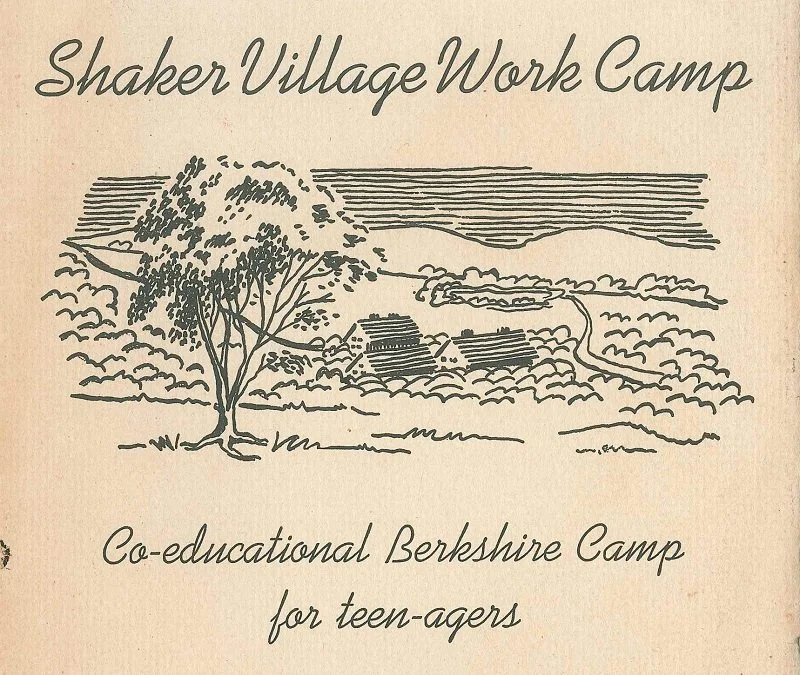Shaker Village Work Group
Shaker Village Work GroupThe Shaker Village Work Group was a co-ed summer camp for urban teenagers that operated from 1947 until 1973 on a site formerly owned by the Mount Lebanon Shaker community. The campers, known as “villagers,” lived in and helped to restore Shaker buildings, created Shaker-style crafts, operated a camp store, and conducted tours for visitors. In addition, villagers had the opportunity to play sports, go on field trips, participate in a variety of creative arts, practice trades such as woodworking and weaving, and more. They also learned Shaker songs and dances, which they performed at the Shaker Museum’s annual Antiques Festival for a number of years.
The camp, originally called the Shaker Village Work Camp, was founded and run by Jerome and Sybil Count, who purchased the buildings and property of the Mount Lebanon South and West Families in 1946. Mr. Count did extensive research into Shaker history and culture to develop an immersive experience for the villagers that was well-grounded in Shaker principles and practices. As he wrote in an essay published in 1961, “Its purpose is to provide teenage boys and girls with experience in manual, intellectual, and artistic works of all kinds. In recreational and cultural activity and through group living, it seeks to develop sensitive and understanding relationships with others.”
The Shaker Museum holds a small collection of archival materials documenting the Shaker Village Work Group. Much of the material is comprised of personal papers and research material gathered by Jerome Count. The collection also includes some of the works created by villagers such as essays, poetry, and a reproduction of a broadside for Shaker Sweet Corn, as well as drawings of Shaker clothing pieces made by Ellen Count, the daughter of Jerome and Sybil. There are also about 160 photographs including portraits of the Counts, snapshots of villagers’ activities, and some of the Shaker buildings that they stayed in and visited. The collection reveals not only the lengths to which the Counts went to provide an enriching experience steeped in the history and culture of the Shakers, but also how much the villagers learned and achieved; and it demonstrates that the values and practices of the Shakers have appeal across the generations.
To browse the museum’s Shaker Village Work Group Collection, click here.
To view the finding aid for the collection, click here.Funding for the processing and digitization of the Shaker Museum’s Shaker Village Work Group collection was generously provided by Michael Kramer, an alum of the camp; the museum is grateful for Mr. Kramer’s dedication to preserving its history.

